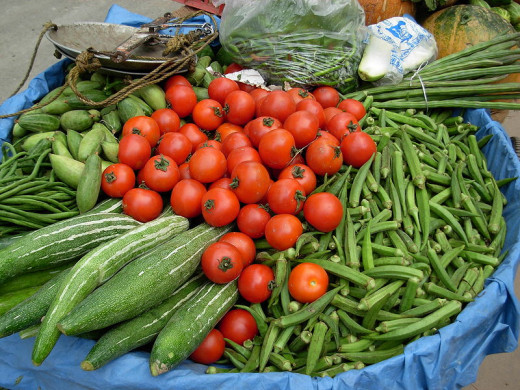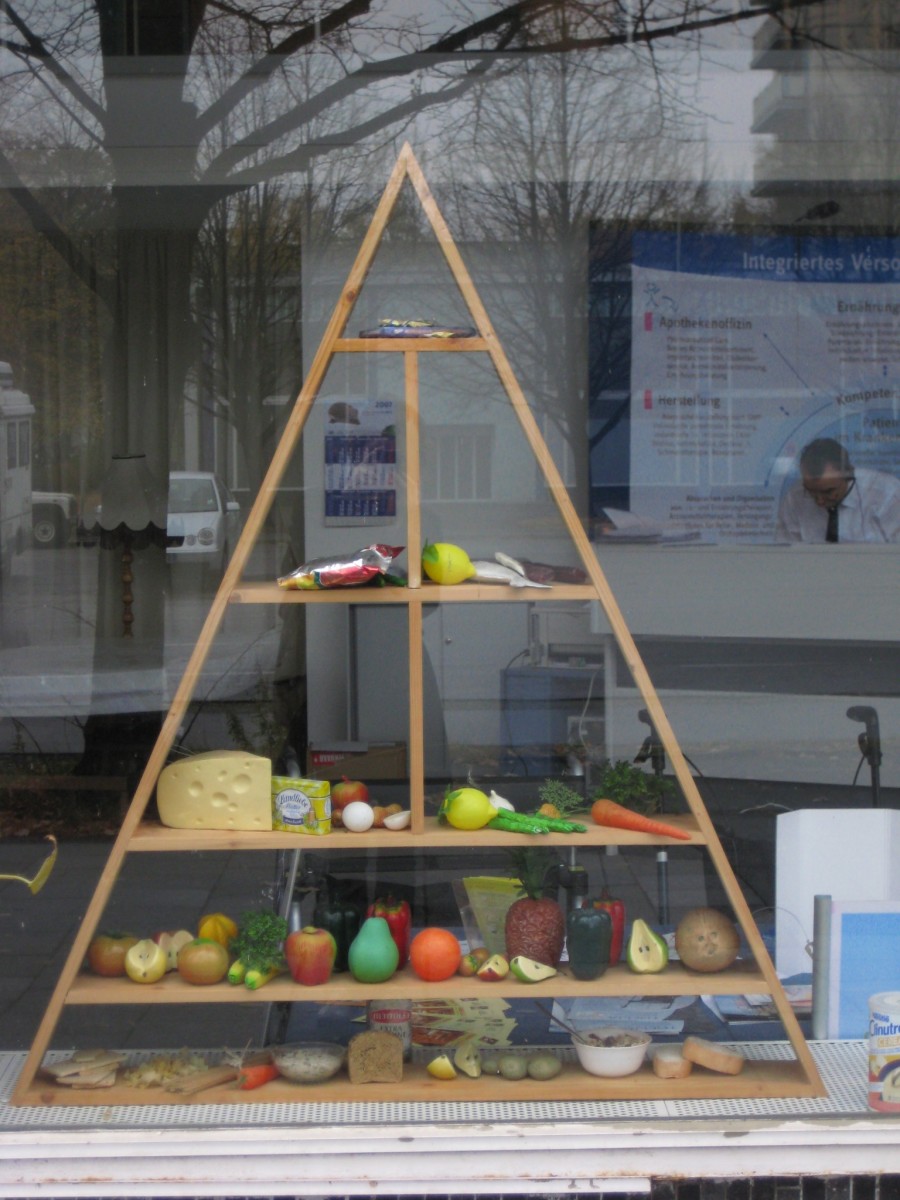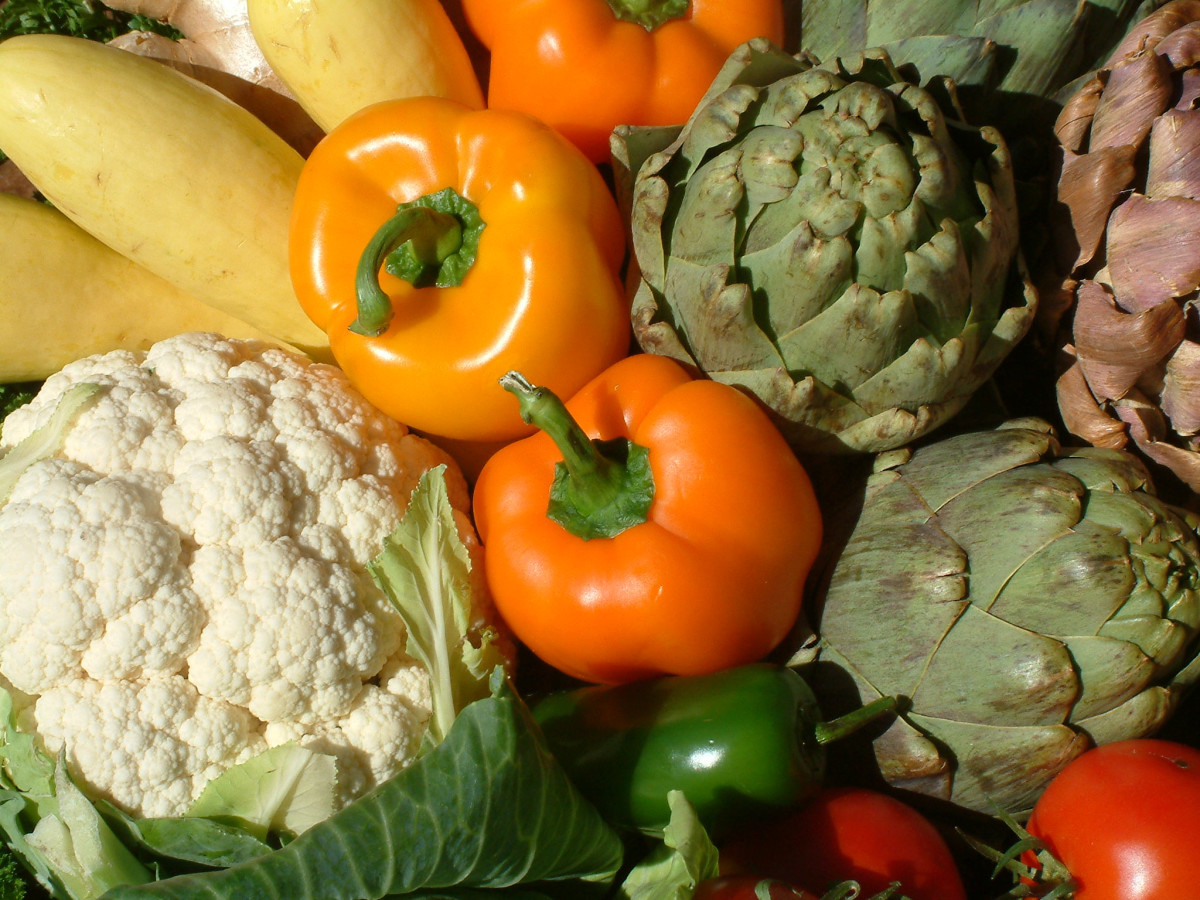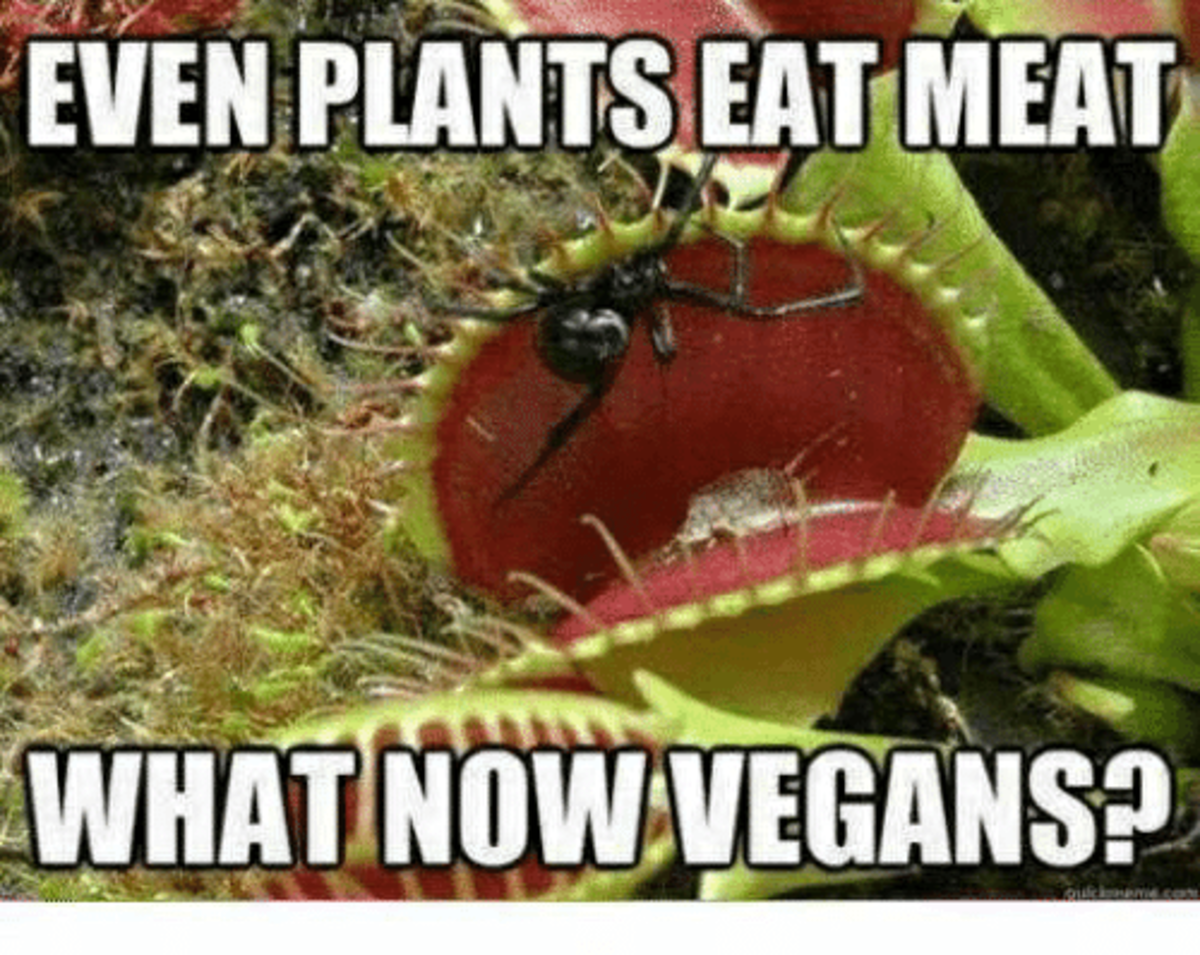Vegetarianism: should people eat meat?

Vegetarianism: is it 'right'?
Societies in which no meat or fish are eaten are rare and usually exist through necessity (e.g. due to poverty) rather than choice. However, in many Western societies voluntary vegetarianism is on the increase which raises the questions; should we stop eating other animals or is meat an essential part of the human diet? The question of whether vegan-ism is morally right is also to be considered as it is a growing view in Western societies.
Animal Welfare
The main reason for people choosing to become vegetarian is to reduce the suffering of innocent animals. It is felt that farm animals such as sheep, pigs, cows, and chickens etc. are sensitive creatures like us - they feel pleasure and pain as humans do. Is it therefore wrong to cause them pain when we are able to farm crops and don't require their meat? Should these animals have equal rights to life as humans? The quality of the animals life is also greatly reduced to lessen the cost of raising them. Often the animal is farmed in barbaric and cruel conditions - even on some 'free range' farms. In many countries animals are not even covered by the most basic of animal welfare laws and so are abused in harsh ways.
On the other hand, it is arguable that eating meat doesn't necessarily mean cruelty to animals. There are an increasing number of organic and free-range farms that can provide meat without causing them harm during the animals lives. Perhaps it is a better idea to ask for an extension of animal welfare laws to protect farm animals rather than eradicating meat from your diet as it does not mean that eating meat, in principle, is wrong.
Meat-eating is a choice
Vegetarians also argue that, as humans are omnivores we are able to choose whether to eat meat, vegetables or both. Humans may be 'naturally' violent hunters of animals but that does not, in itself, make meat eating right. Humans are also 'naturally' violent towards on another but that doesn't make murder right. Many natural traits are immoral and should be restrained in favour of a just society. Apes, the creature most similar to ourselves, for example, are herbivores. Why can't we be?
However, human beings have evolved to eat meat, with sharp canine teeth for tearing animal flesh and digestive systems adapted to eating meat and fish as well as fruit and vegetables. Modern 'squeamishness' about eating meat and fish is the convention of a wasteful society, which gets in the way of our natural instincts and physiology. We were made to eat both meat and vegetables (/fruit) - cutting out half of this diet will inevitably mean we lose that natural balance which has formed over the course of our evolution and adaptation. To restrict our diet in this way requires more time and effort into ensuring our diet contains the correct portions and ratios particularly of protein which meat is rich in.
The Environment
Becoming a vegetarian is an environmentally friendly thing to do. Farming is a major source of pollution in rivers today. Beef farming is one of the main causes of deforestation and, as long as people continue to buy fast food in their billions, we will be financially motivated to continue cutting down trees to make room for cattle. Also, our desire to eat fish means our rivers and seas are being drained of life and many species are nearing extinction. Finally, energy resources are used up much more greedily by meat farming than by crop farming. Eating meat and fish not only causes cruelty to animals, it causes serious harm to the environment.
Conversely these problems would still exist without meat farming. Deforestation has been growing for centuries as human civilisations expand, but can now be counteracted by planting sustainable forests. There are many worse sources of pollution than farmers, and furthermore crop farmers also use nitrates, pesticides, and fertilisers, which damage the environment so it is not right to blame only meat farmers. Lastly the energy crisis is global and so any solution must come from the efficient use of natural resources and the development of alternative sources of energy. Meat farmers are only a drop in the ocean.
Conclusion
Although vegetarianism has some benefits, they do not outweigh the human instinct and desire to consume meat. Meat farming does affect the environment but not significantly more than crop farming and many other pollutants have a much greater effect on the atmosphere. Deforestation is more often affected by human desire and greed than it is by farming. Animal suffering is the only real persuasive argument, but even than could be solved if stricter regulations were put in place world wide. The question remains though who would enforce these regulations and how can it be brought into the equation? In all honesty, it would be extremely difficult to control the treatment of farm animals globally. However, an individual could perhaps only shop for meat sourced humanely in the hope that this will become the norm. Therefore, I believe vegetarianism should be a personal choice and should neither be forced upon people nor scorned by others. There are extreme opinions on both sides but I think valuing other peoples choices whether they agree with our own or not is the most important thing.









